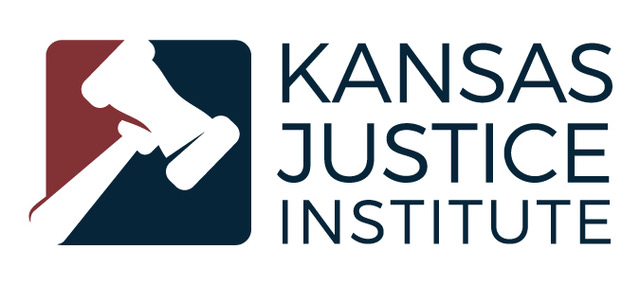A lawsuit by a Wichita gym owner asking for payment from the State of Kansas for his lost revenue because of COVID-19 shutdowns is on hold — pending potential action by the Kansas Legislature.
On December 8, 2020, Ryan Floyd, owner of Omega Bootcamps, Inc., through his attorneys Ryan A. Kriegshauser and Joshua Ney, filed the lawsuit in Sedgwick County District Court, claiming the shutdown earlier this year constituted governmental “use” of his property for which he is owed compensation.
On Dec. 31, 2020, a pair of press releases announced that the parties had agreed to put the case on hold, in hopes that the legislature would take action during the upcoming 2021 session.
“This lawsuit raises important public policy questions extending well beyond this individual case that would be better answered by the Legislature rather than courts,” Kansas Attorney General Derek Schmidt said in his release. “I agree with the basic principle, reflected in current law, that at least some of those whose property is significantly damaged by government actions undertaken for the public good during a state of emergency should be compensated for their loss.”
Kriegshauser said, in another release, this development means the state agrees that — at the very least — Floyd has a case.
“By asking the legislature to take up this matter, the State is acknowledging government use claims are possible in at least some circumstances under the Kansas Emergency Management Act,” Kriegshauser said. “This is a major development that has statewide and possibly national implications because other states have similar statutory provisions.”
The problem, according to Schmidt, is that the law is not clear.
“Current law was not designed to address these sorts of business shutdown orders, and it is not certain (nor does the state concede) that the law as written applies on the facts of this or similar cases,” Schmidt said. “Therefore, rather than proceeding directly to litigation, we have reached agreement with the plaintiffs to jointly ask the court to put this lawsuit on hold during the 2020 legislative session so we can ask the Legislature to consider in a comprehensive manner the public policy issue of compensation for businesses for losses caused by lockdowns. In the event the Legislature fails to resolve this issue globally, the litigation will resume and we will provide the state a proper legal defense under current law.”
Kriegshauser’s co-counsel agreed that the legislature needs to address the issue.
“Both the State and local governments are officially on notice that they may have to compensate businesses for previously imposed restrictions,” Ney said. “We call on policymakers to act to make small businesses whole after the economic devastation caused by the Governor’s shut-down orders. State and local governments must consider the economic costs associated with curfews, shut-downs, and business restrictions before allowing such unilateral power to be exercised in the future.”
Background
The originally-filed petition states Floyd is seeking “… compensation from the State of Kansas … for use of (his) business property in coping with the COVID-19 pandemic. Since the initial state and local emergency declarations in March 2020, the State and Sedgwick County … have issued sequential emergency public health orders pursuant to the Kansas Emergency Management Act … to mitigate the spread of COVID-19. Such emergency orders both prohibited business use of (Floyd’s) property and constituted government use of the property in coping with the declaration of the pandemic. The government used (Floyd’s) property by asserting use proscriptions and control over Plaintiff’s property for the benefit of the general public to control the spread of COVID-19 virus.”
At the heart of the issue, according to a release related to the lawsuit, is the designation of “essential” vs. “nonessential” in KEMA.
Governor Kelly’s administration used that framework, as defined by the Kansas Emergency Functions Framework to — in theory — determine which businesses were “essential” and which were not.
However, many of those designations were arbitrary at best.
Kriegshauser and Ney say a use compensation provision of the Kansas Emergency Management Act requires the state and Sedgwick County to pay Floyd because by forcing a shutdown, they essentially commandeered his business to respond to the pandemic.
The statute states, in part, that a business owner may be entitled to compensation if: “… the claimant may not be deemed to have volunteered services or property without compensation,” and “Compensation for property shall be only if the property was commandeered or otherwise used in coping with a disaster and its use or destruction was ordered by the governor, adjutant general, an official of a county, city or interjurisdictional disaster agency, or some other authorized member of the emergency management forces of this state.”
Floyd contends that the shutdown and designation as “non-essential” meant that the state was — in effect — commandeering and using his property under the law.
Federal Case
Many of the largest names in the Wichita nightclub scene have also filed suit, but are doing it in federal court, alleging First Amendment violations.
“A face mask has become a symbol of an attempt by the government to gain control of its citizenry,” the lawsuit claims. “Forcing them to wear face masks is forcing them to convey a message with which they disagree. Because a mask has become a political symbol during this current and highly politicized pandemic, the wearing of a mask is a form of symbolic speech.”
Since a new mask and curfew order, from Sedgwick County Health Officer Dr. Garold Minns, went into effect on Nov. 13, according to the Wichita Eagle, Revolution Lounge Owner Kyle Okumura said in an affidavit his revenue is down 90 percent.
“Business operations have currently (ceased) as of November 13, 2020, and thus all current employees have been temporarily laid off,” the affidavit said.


